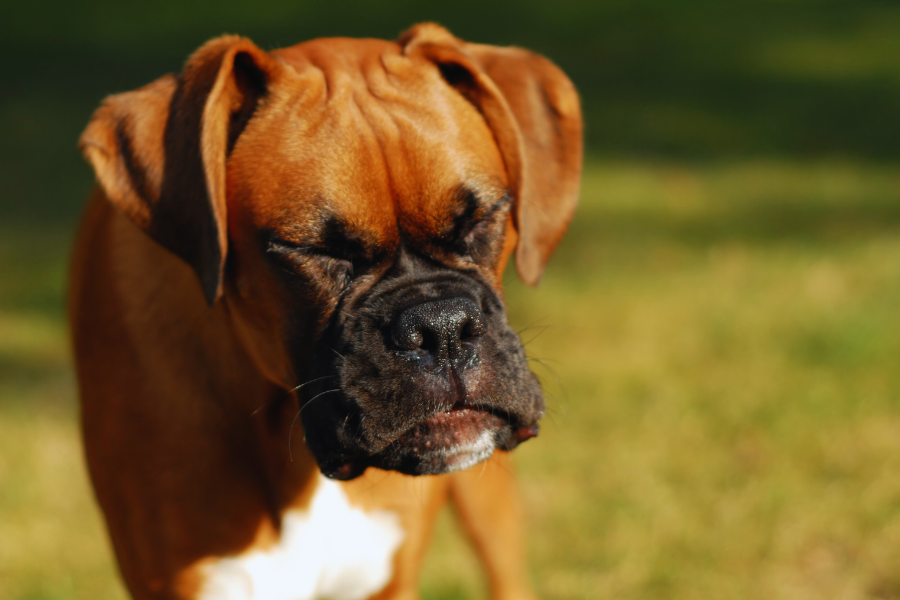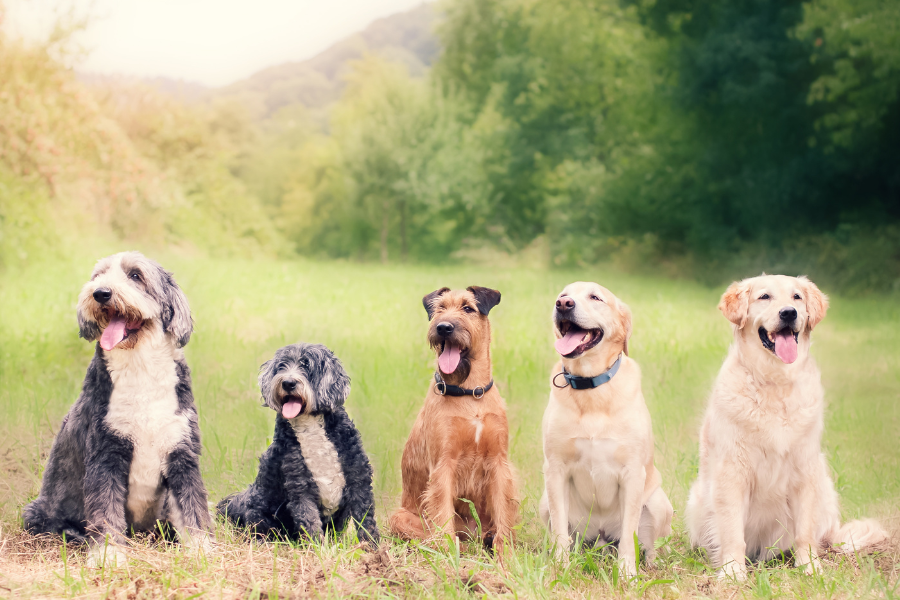Has your furry friend been sounding more like a sneezing machine or a coughing orchestra lately? Look, I get it. A little sneeze here or a cough there is nothing to worry about. But constant bouts of both? That might just leave us scratching our heads and, let's be real, feeling a tad concerned. But hey, hold on. That sudden mimicry of human cold from your dear pup might seem scary, but it's often something that can be managed with a little bit of knowledge and love.
So, let me guide you through why your baby might be displaying persistent sneezes and coughs, and how you can help them feel better. We're in this together, fellow dog parents—because nothing lights up our homes like a happy pup.
What's Up With My Dog's Sneezes & Coughs?
Yo, so your dog's been sneezing & coughing a lot, right? That’s usually how dogs wave goodbye to those irritants in their noses or lungs. Kind of like their four-legged flu shot. But when the sneezes and coughs turn from a simple 'gesundheit' into an all-night rave, it’s time to play detective and sniff out what's up.
Why's My Dog Sneezing All The Time?
1) Allergies
You’d be surprised, but our little furballs can be sneezing because of allergies too! Everything from garden-variety pollen to dust bunnies, funky molds or even your favorite lavender-scented cleaner could be behind those sneezes. If your pooch starts that sneezing fit just as spring blooms or right after you vacuum, it might be allergy-season for them.
2) Foreign Objects
Our doggies are curious little guys, always poking their noses where they don’t quite belong. Occasionally, they end up with something stuck up their noses. Those sneezes? That's them trying to kick the crasher out.
3) Doggy Nasal Mites
These tiny, annoying nasal mites are no picnic for your dog or you. They can cause everything from an endless sneeze fest, to a runny nose, or even a swollen snout. It's a bit gross, we agree, but your vet can sort it out.
4) Respiratory Infection
Our fur-friends can catch colds too, just like you and me. These can cause sneezing, along with coughing, a drippy nose, and sometimes they might seem a bit tired.
5) Fungal Infection
While it's rare, fungal infections like aspergillosis can annoy your dog's nose, causing a sneezing marathon. They usually pick it up from soil or gardening areas. Yup, you read that right, your dog's green paw could be causing the sniffles.
6) Play Sneezes
Believe it or not, not all sneezing is a bummer! Many dogs "fake sneeze" during playtime to show they’re just goofing around. It’s like their way of saying, “Chill, I’m not actually peeved!”
Common Causes of Coughing in Dogs
1) Kennel Cough
Kennel cough, scientifically known as canine infectious tracheobronchitis, is a highly contagious respiratory disease. It’s common in dogs who have been to boarding kennels, dog parks, or shelters. You'll typically notice a persistent, honking cough.
2) Collapsing Trachea
Small breeds like Pomeranians and Chihuahuas are prone to collapsing tracheas, which can cause frequent coughing, especially when they’re excited or pulling on their leash.
3) Heart Disease
While less common, coughing can be a sign of an underlying heart condition. This typically occurs when fluid builds up in the lungs due to reduced heart efficiency.
4) Respiratory Obstructions
Sometimes, sneezing and coughing can indicate that your curious canine has swallowed something they shouldn’t have (we’re looking at you, sock thieves).
5) Canine Influenza (Dog Flu)
Yes, dogs have their version of the flu too! Symptoms include coughing, sneezing, a runny nose, and sometimes fatigue or fever.
6) Parasites
Lungworms can irritate your dog’s respiratory system, leading to persistent coughing. It’s a rare cause, but something to watch for if your dog has access to contaminated water or prey.
When Should You Be Concerned?
It’s important to know when excessive sneezing or coughing moves from "That’s odd" to "It’s time for the vet." Watch out for these signs:
- Persistent coughing or sneezing lasting more than a few days
- Nasal discharge (especially if it’s yellow, green, or bloody)
- Trouble breathing or noticeable wheezing
- Lethargy or loss of appetite
- Vomiting or gagging after coughing
- Pale or bluish gums (an emergency situation!)
If you’re noticing any of these symptoms alongside frequent sneezing or coughing, contact your vet as soon as possible.
What You Can Do to Help Your Sneezing or Coughing Dog
Here’s the good news—you don’t have to sit idly by while your pup coughs their heart out like a mini Pavarotti. Here are some practical steps you can take to ease their discomfort:
1. Keep Their Environment Clean
Let's nip those allergens in the bud by getting our vacuum out regularly, giving their bedding a good wash, and steering clear of heavy fragrance cleaning products.
Pro tip: An air purifier that's safe for pets will work wonders in clearing the air of dust and pollen.
2. Hydrate, Hydrate, Hydrate
Try to get your doggo to drink plenty of water. It might sound simple, but hydration can really ease a sore throat caused by coughing. If your pupper is being a bit fussy, here's a little secret: add some low-sodium chicken broth to their bowl—it’s like a magic potion for hydration!
3. Boost Their Immunity with Supplements
Consider adding immune-boosting supplements to your furry friend's diet, like quercetin and turmeric. These natural remedies may help support their immune system and reduce inflammation, providing added relief during sneezing or coughing episodes. Always consult with your veterinarian before introducing any new supplements to your dog's routine.
Remember, your pup's health and well-being are a top priority. By implementing these practical steps and giving them extra love and care, you can help alleviate their discomfort and keep them wagging their tail in no time. Stay pawsitive, and remember that you're not alone in supporting your adorable sneezing or coughing companion!
4. Adjust Their Collar and Leash
If your pup has a collapsing trachea or a coughing issue, consider switching to a harness instead of a collar. It'll take the pressure off their windpipe, and trust me, they'll thank you for it.
5. Try a Humidifier
Dry air is no good for sneezes and coughs. Switching on a humidifier close to your dog's sleeping area could do wonders in keeping their airways moist and reducing irritation.
5. Offer Some TLC
Sometimes, all your furry pal needs is some extra comfort. Make a cozy spot for them to rest, and pump the brakes on activities until they're feeling better.
6. Medication and Vet Care
Dealing with nasal mites, infections, or parasites? Your vet might just prescribe some meds or recommend a procedure to kick the issue to the curb.
If we're talking kennel cough or canine flu, your vet might suggest some much-needed rest, plenty of water, and maybe even antibiotics or antivirals.
Prevention is Better Than Cure
It's a whole lot easier to prevent these issues than treating them later on. So, here's some advice from me to you to keep your furry friend healthy and happy:
Regular Catch-ups with the Vet:
I can't stress enough how important it is to stay one step ahead of any health issues. Routine check-ups are the way to go.
Vaccinations:
Make sure your pup is all up to date with their kennel cough and dog flu shots. This is especially crucial if they're frequently hanging out with other dogs.
Managing Allergies:
If your dog is prone to allergies, do your best to keep them away from what triggers them. Don't hesitate to talk with your vet about the possibility of allergy medication if needed.
Eyes on the Prize During Adventures:
Always keep a watchful eye on your dog during walks and playtimes. We wouldn't want them sniffing or munching on something they shouldn't, right?
And That's a Wrap
Hey, no one likes a sneezing or coughing fit, especially when it's your furry friend. But don't panic - in a lot of scenarios, you can get it under control with some simple, doable steps or maybe a quick visit to your local vet. Remember, your four-legged mate is counting on you for their well-being and joy—and by reading this guide, you're already on the right path to giving them a paw.
Got any questions about what's going on with your pupper? Don't hold back, share your story in the comments with us! And if you thought this was useful, why not spread the love to other dog owners who might need it. Now, off you go, give your sneezy, wheezy pet a few extra belly rubs—they've earned it. 😊
References
1) American College of Allergy, Asthma & Immunology. (n.d.). Pet allergies. Retrieved December 7, 2024, from https://acaai.org/allergies/allergic-conditions/pet-allergies/



